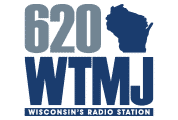NEW YORK (AP) — Stocks are rallying in early trading on Wall Street on hopes for more help for banks from the U.S. government. Even the banks most beaten down by the industry’s crisis, like First Republic, were higher. The S&P 500 rose 1% early Tuesday. The Dow Jones Industrial Average and the Nasdaq composite were also higher. Markets around the world have pinballed this month on worries the banking system may be cracking under the pressure of the fastest set of hikes to interest rates in decades. If the S&P 500 squeezes out a gain, it would mark its first back-to-back rise in two weeks.
THIS IS A BREAKING NEWS UPDATE. AP’s earlier story follows below.
Wall Street is poised to open higher Tuesday ahead of a decision by the Federal Reserve this week on whether to raise interest rates again despite heightened anxiety over the stability of the global banking system.
Futures for the Dow Jones Industrial Average and futures for the S&P 500 each rose 0.8%.
Wall Street’s benchmark S&P 500 index rose 0.9% on Monday after U.S., European and Japanese central banks announced measures to ease strains on the financial system, including lending more dollars if necessary.
Mid-sized banks, rattled by the collapse of two tech-focused banks, are bouncing back.
Silicon Valley Bank, based in Santa Clara, California, failed on March 10 after depositors rushed to withdraw money amid anxiety over the bank’s health. It was the second-largest bank collapse in U.S. history. Regulators convened over the following weekend and announced that New York’s Signature Bank also had failed. U.S. regulators said that all depositors at both banks, including those holding uninsured funds, those exceeding $250,000, would be protected by federal deposit insurance.
First Republic Bank has been particularly volatile this week because so many of its customers have deposits that exceed that $250,000 level. Shares plunged 47% Monday when S&P Global Ratings cut its credit rating for the second time in a week and have lost almost half their value in a little over two weeks. Shares are bouncing back early Tuesday, up 23% before the opening bell.
S&P said it could lower the rating even further despite a group of the biggest U.S. banks announcing last week they would deposit $30 billion in a sign of faith in First Republic.
New York Community Bancorp jumped 31.7% on Monday and rose another 6% in premarket after it agreed to buy much of Signature Bank in a $2.7 billion deal.
Shares of other mid-size regional banks such as U.S. Bancorp, KeyCorp, Fifth Third and PNC all rose between 2% and 4% before the bell Tuesday.
The collapse of two U.S. banks and the takeover of troubled Credit Suisse have heightened fears other lenders might crack under the strain of repeated rate hikes to cool economic activity and inflation that is near multi-decade highs.
Traders expect the Fed to go ahead with another rate hike Wednesday but think it might be held to 0.25 percentage points, down from the 0.5 points previously expected.
“Can the Federal Reserve really continue to hike rates in the face of a banking crisis?” Clifford Bennett of ACY Securities said in a report. “There are ongoing stresses in the banking system that will only grow with further rate hikes.”
Germany’s DAX gained 1.7% and the CAC 40 in Paris jumped 1.6%. Britain’s FTSE 100 advanced 1.4%.
In Asian trading, the Shanghai Composite Index gained 0.6% to 3,255.65 and the Hang Seng in Hong Kong advanced 1.4% to 19,258.76.
The Kospi in Seoul rose 0.4% to 2,388.35 and Sydney’s S&P-ASX 200 surged 0.8% to 6,955.40.
New Zealand declined while Southeast Asian markets rose.
On Wall Street on Monday, the Dow industrials picked up 1.2% and the Nasdaq composite added 0.4% after Swiss regulators arranged Sunday for UBS to acquire rival Credit Suisse for almost $3.25 billion.
Credit Suisse’s troubles came to a head last week as its stock price tumbled to a record low. Early Tuesday, its shares were down 1.9%.
The surge in the Fed’s benchmark lending rate to a range of 4.5% to 4.75%, up from close to zero at the start of last year, caused prices of bonds and other assets on banks’ books to fall, raising concern about their financial health.
Early Tuesday, the yield on the 2-year Treasury rose to 4.12% from 3.97% late Monday, while the yield on the 10-year climbed to 3.55% from 3.48%.
In energy markets, benchmark U.S. crude picked up 27 cents to $68.09 per barrel in electronic trading on the New York Mercantile Exchange. The contract rose 90 cents on Monday to $67.82. Brent crude, the price basis for international oil trading, added 15 cents to $73.94 per barrel in London.
The dollar rose to 132.22 yen from Monday’s 131.32 yen. The euro climbed to $1.0781 from $1.0724.
——
McDonald reported from Beijing; Ott reported from Silver Spring, Md.










